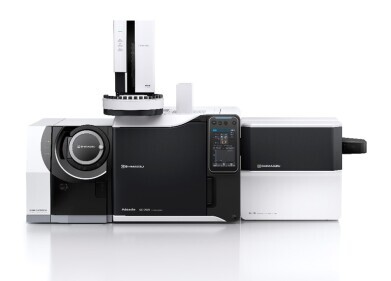Mass Spectrometry & Spectroscopy
Do Strong Solvents Increase MS Risk?
Aug 01 2018
It's no secret that overexposure to solvents can trigger headaches, dizziness and nausea. Now, a new study suggests that people who come into regular contact with paint, varnish and other solvents are at a much greater risk of developing multiple sclerosis (MS) if they also carry susceptible genes.
The study was published in an online issue of Neurology® and revealed that the risk of developing MS increases by 50% for people who expose themselves to paint and other solvents. Furthermore, people who inhale solvent fumes and carry genes that make them more susceptible to the multifactorial disease are almost seven times more likely to develop MS than those who don't carry the genes and avoid solvents.
A risky trifecta
Add a smoking variable and the risk soars, with a combination of cigarettes, genetic risk factors and solvent exposure increasing the risk of developing the central nervous system disease by 30-fold.
"These are significant interactions where the factors have a much greater effect in combination than they do on their own," comments Anna Hedström, author of the study and MD, PhD, of Stockholm's Karolinska Institutet. "More research is needed to understand how these factors interact to create this risk. It's possible that exposure to solvents and smoking may both involve lung inflammation and irritation that leads to an immune reaction in the lungs."
Reducing the risk of MS with lifestyle changes
To conduct the study researchers identified over 2000 people who had recently been diagnosed with MS, then paired them with almost 3000 people of the same sex and age. Blood tests were carried out to reveal whether participants possessed a pair of human leukocyte antigen gene variants, one which reduces the chances of developing MS and the other increasing the risk.
Participants were also asked to rate their exposure to organic solvents, painting products and varnish, as well as their past or present smoking habits. Overall, the researchers concluded that a combination of MS genes and exposure to solvents accounted for roughly 60% of the risk of developing the disease, while smoking increased the chances further.
"How this cocktail of MS genes, organic solvents and smoking contributes so significantly to MS risk warrants investigation," comments the University of Oxford's Gabriele C. DeLuca, MD, DPhil. "In the meantime, avoiding cigarette smoke and unnecessary exposure to organic solvents, particularly in combination with each other, would seem reasonable lifestyle changes people can take to reduce the risk of MS, especially in people with a family history of the disease."
There's plenty of buzz surrounding multiple sclerosis research, with nanotechnology often at the forefront of new developments. To find out more about the manipulation of matter on an atomic, molecular and supramolecular scale don't miss 'Why Does Nanotechnology Require Mass Spectrometry?
Digital Edition
Lab Asia 31.2 April 2024
April 2024
In This Edition Chromatography Articles - Approaches to troubleshooting an SPE method for the analysis of oligonucleotides (pt i) - High-precision liquid flow processes demand full fluidic c...
View all digital editions
Events
Apr 24 2024 Jakarta, Indonesia
Apr 25 2024 Istanbul, Turkey
Apr 28 2024 Montreal, Quebec, Canada
May 05 2024 Seville, Spain
InformEx Zone at CPhl North America
May 07 2024 Pennsylvania, PA, USA


















